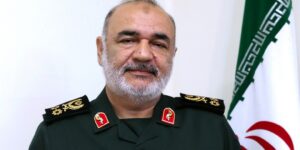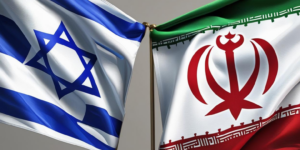Pakistani Pastors Fear Retaliation after Police Withdraw Charge
Christian leaders in Punjab Province’s Nankana Sahib district said they were apprehensive after a police inspector’s warning on Friday (Jan. 7) that “they would be responsible for anything that went wrong in the villages” if they continued preaching over a public address system.
Eight pastors leading a delegation of more than 100 Christians from Martinpur and Youngsenabad villages had persuaded police to drop the charge of preaching over the church loudspeakers — a practice routinely allowed by Muslims in mosques. They complained of inspector Muhammad Rana Ishaq’s veiled threat to the police chief, but they fear Ishaq will file other false cases against them in retaliation for the withdrawal of the charge.
The Christian delegation registered a strong protest with the Nankana police chief for restricting their worship. After two hours of talks, the police chief conceded that his staff had discriminated against the Christians and ordered withdrawal of the case. Police had filed a case against the eight pastors for “misusing loudspeakers” on Dec. 25, 2010. The pastors said police should have taken into account that it was Christmas Day, and that residents of the two villages were worshipping in their churches.
Pastor Mubarak Victor of Cavalry Gospel Church in Martinpur village told Compass that he and seven other pastors — Chandan Lal, William Kayani, Shahzad Fakhardin, Amoon Samuel, Shamaoon Khokhar, Amir Sohail and Hanooq Daniel — had been named in the case. Victor said the charge was ridiculous, as they have been preaching and worshipping on public address systems for decades.
“Our villages are inhabited by Christians, and we have been worshipping freely for years,” Pastor Victor said. “A ban on using loudspeakers was imposed on Muslim clerics because they often indulge in fanning sectarianism. This action of the administration is nothing but religious bigotry.”
He added that filing a case against the pastors on Christmas Day was a step towards restricting the Christians’ right to worship. The two villages have a combined Christian population of around 10,000.
“Muslims from our neighboring villages are behind this move,” Pastor Victor said. “Over the last couple of years, Muslims, mostly youth and women, have started coming to us for prayers. Almost all the Muslims who have visited my church said they were impressed by our sermons and worship and asked me to pray for them. Some have even denounced their faith but are keeping it a secret from their families.”
He said the pastors were not forcing the Muslims to come to them.
“It is the sincerity in our prayers and the testimonies we share that bring a change of heart in them,” he said.
Pastors Chandan Lal and Amir Sohail voiced similar concerns.
“Martinpur and Youngsenabad are Christian villages. Our public address systems have only been used for God’s Word and to give glory to His name,” Pastor Lal said. “They [police] registered a case against us only to intimidate us into restricting our worship. We won’t accept this at any cost.”
He said that Muslim prayer leaders used public address systems with impunity even though they were the ones who had actually been restricted from using it, other than regular calls to prayer (azaans).
“We have never said a word against any religion, let alone Islam,” Pastor Lal said. “When the villagers don’t have an issue with praise and worship on PA systems, who are the police to interfere?”
Malik Aftab, a village elder from Youngsenabad, told Compass that the villagers would not let police arrest any of the pastors.
“They [the police] are provoking us unnecessarily by registering a case against the pastors on Christmas day,” Aftab said. “Has anyone arrested any mullah [Muslim prayer leader] when they are addressing Eid sermons on loudspeakers? Why the discrimination?”
Chaudhry Habil Qaiser, 90, who is one of the oldest residents in Martinpur village, said he and his 86-year-old wife cannot go to church for praise and worship due to their old age.
“We join the congregation in praise and worship while listening to the church loudspeakers,” he said. “The government should not impose such restrictions in our village.”
Nankana District Police Officer Shahzad Waheed said the pastors had been booked for violating the Amplifier Act, but he had no explanation for why Muslim clerics were not booked for misusing loudspeakers when delivering hours-long sermons on the Muslim festival of Eid and for Friday prayers, especially as these acts led directly to introduction of the Amplifier Act.
Nankana district is the same one that Asia Noreen, the first Christian woman sentenced to death on blasphemy charges, lived in before her conviction. Her village of Ittanwali is about 15 kilometers (nine miles) from Martinpur and Youngsenabad.



























































